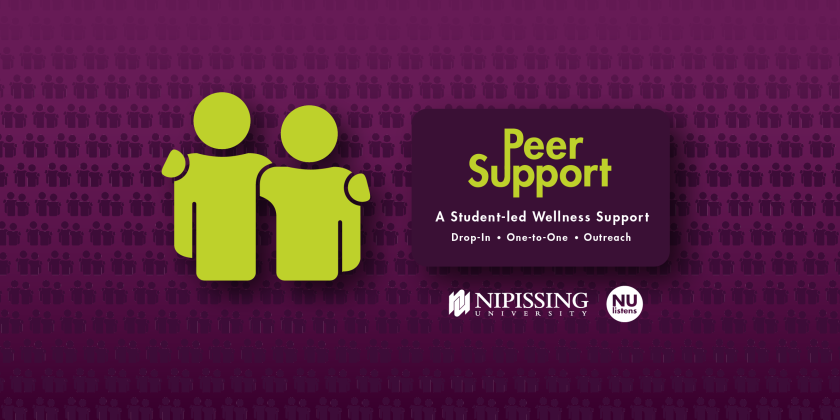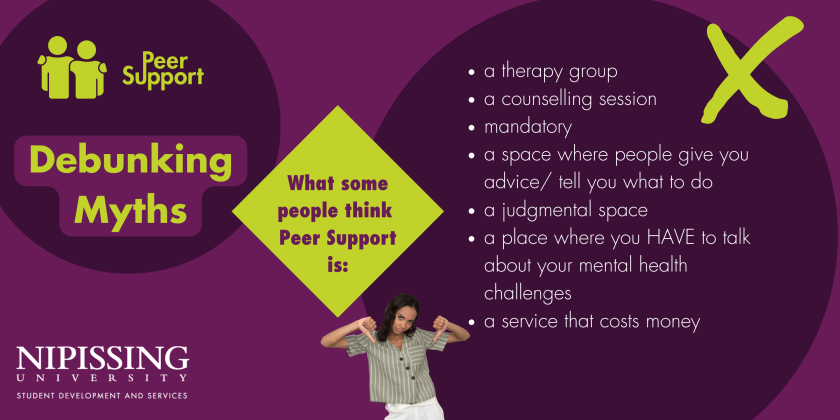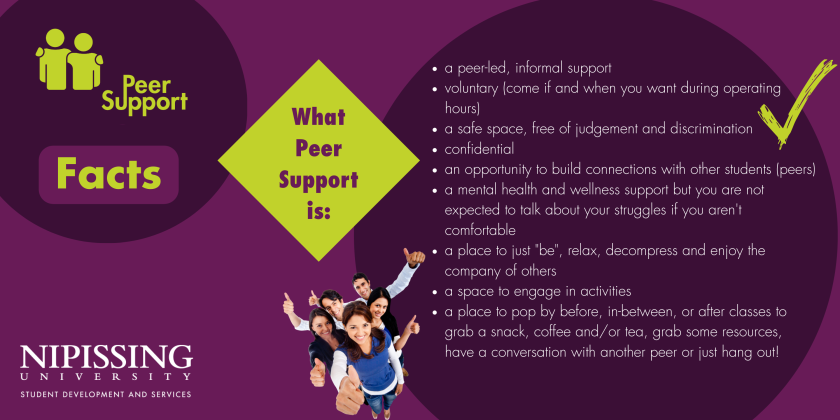NOTICE Effective November 17th, 2025: Peer Support Programming is temporarily unavailable.
Program updates are made available on our webpage as needed. Feel free to follow us on Instagram to stay informed as well - nu.peersupport
For more information, contact mhwellbeing@nipissingu.ca or call 705-474-3450 ext. 4507.



